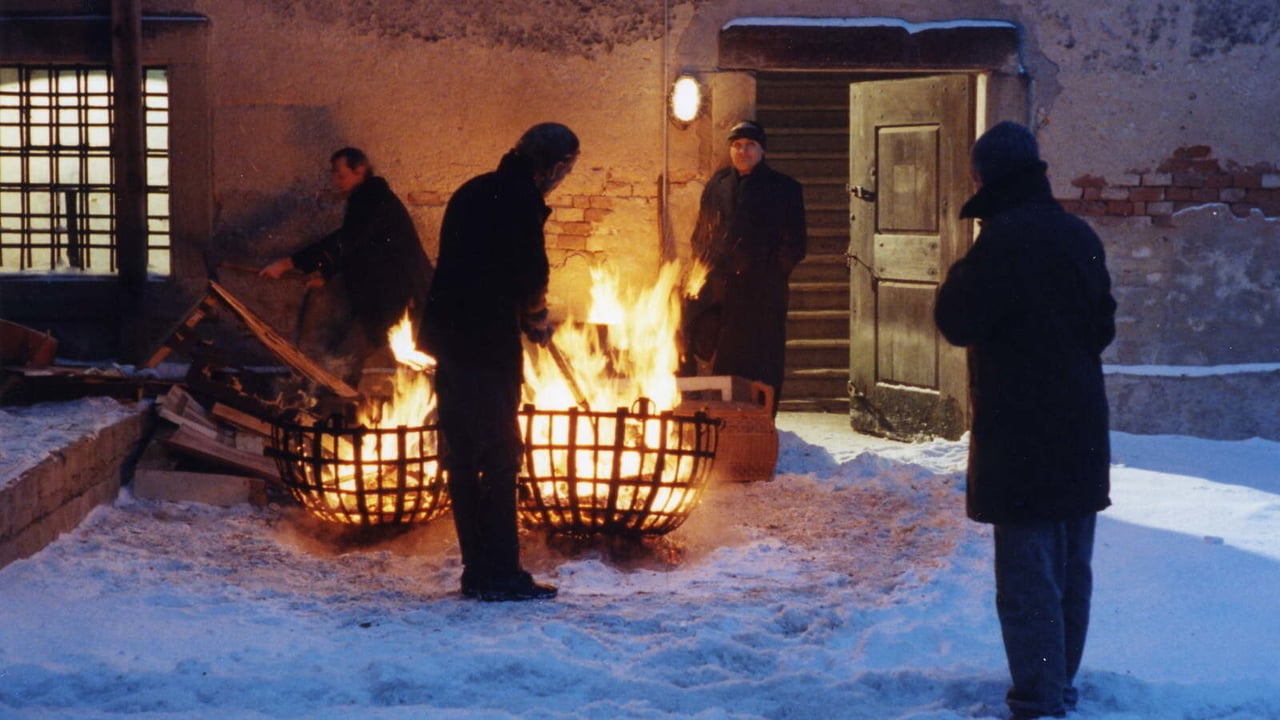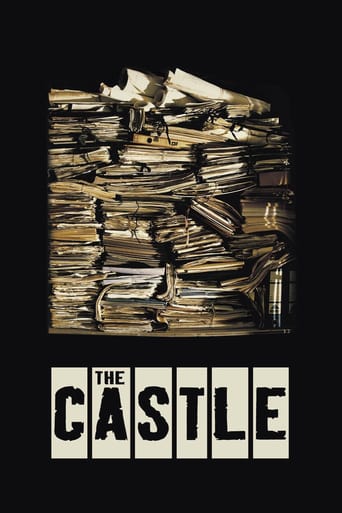Diagonaldi
Very well executed
BootDigest
Such a frustrating disappointment
FuzzyTagz
If the ambition is to provide two hours of instantly forgettable, popcorn-munching escapism, it succeeds.
Darin
One of the film's great tricks is that, for a time, you think it will go down a rabbit hole of unrealistic glorification.
Hitchcoc
This, apparently was made for TV by Michael Haneke. After having seen "The Trial" and read pretty much all the works of Kafka, one comes to expect something. Unlike the former, the protagonist is given many options, but never seems as confused as Joseph K was. He seems to feel that his job as a land surveyor trumps virtually anything, even though he is obviously not wanted. He will betray, barge in on, and do anything with the strange people he encounters, including marrying one of them, to get to that Castle. But as is the case with the existentialists, his path is as much a part of the thing, cold and dank and full of trauma, as ever actually reaching the Castle. And, why should such a place need a surveyor anyway. This is a nightmare come to life. He meets his assistants, a couple of twin "boys" and they have no surveying equipment. They have no knowledge of surveying, and yet off they go. Or sort of. It is an endless tromp through snow and buildings and meetings with obstructionists. And so it goes.
lastliberal
This film is certainly not for everyone. Maybe for Haneke completists only.It is based on one of Franz Kafka's three novels, and it can basically be described as a satirization of bureaucracy.K (Ulrich Mühe - Georg in Funny Games) arrives for a job and is met with resistance. The next day two assistants arrive (one is Artur (Peter from Funny Games). K spends most of his time trying to get into the castle to do the work he was hired to do, but it seems he isn't needed.He takes up with Frieda (Susanne Lothar - Anna from Funny Games, and the midwife in The White Ribbon).From here it is surreal and confusing. He bounces from official to official never really getting anywhere.Haneke and Kafka were made for each other.
vicentiugarbacea
Michael Haneke illustrates Franz Kafka's manuscript for the novel bearing the same name, in his film 'Das Schloss'. We can call it a cinematic rendition of the plot. The film begins with the scene of K. entering the door of the inn, which commences with the still image of a mountain village posted on the door. Consequently the film ends unexpectedly in the middle of a scene which presents K. walking to the horse stables waiting to find Gerstäcker's mother reading. It's like you read a text and you stop where it stops. This illusion is perfectly staged by Haneke.However, it is a film and not a novel. You cannot control the point where you would like to stop. You cannot read again a paragraph; everything is rendered linearly, in a narrative form. Basically, in this instance the film as a medium encompasses the novel. It would feel inappropriate to say just that about this film.What is remarkable in Haneke's work is the way he recreates the absurd universe of Franz Kafka: by using long static shots, lack of conversation, abrupt ending of scenes and arranging all narrative elements to express in every moment a state of insecure and temporary state of facts.The image is outstanding in terms of expressiveness, at least. There are lots of nuances of blue and brown and the light is used very carefully to create special types of dark settings resembling Rembrandt's paintings.The actors' performance must be highly credited, especially in the case of Ulrich Mühe and Sussane Lothar who are playing K. and Frieda, respectively.If making films is about relying on other artistic forms, especially on the novel and if you believe in the concepts of mimetic and cathartic art, then at least you have to come up with something outstanding in these terms. Michael Haneke manages to do this because his very own approach of film-making.
merva_somer
A land surveyor,K.,is invited to the Castle to do some work for the Count,but when he arrives at the Village,he finds that nobody is expecting him.K.'s attempts to get into the Castle are as unsuccessful as his attempt to settle into the local village.He is greeted by a compact reluctance from the villagers,who with a systematic inefficiency prevent him from any prospects of even approaching the castle.The harder the stubborn K.,tries,the farther he moves from his goals.The impenetrable,seemingly haphazard but strangulating bureaucracy of the castle hinders the clarification of his social and existential situation.K. remains what he was on the day of his arrival:a stranger who is barely tolerated...Haneke's film version of Kafka's famous unfinished novel is an unusually faithful and highly successful literary adaptation.Kafka is,with his absurd,pessimistic yet still very realistic idea of the world,a sort of soulmate of Haneke's.

